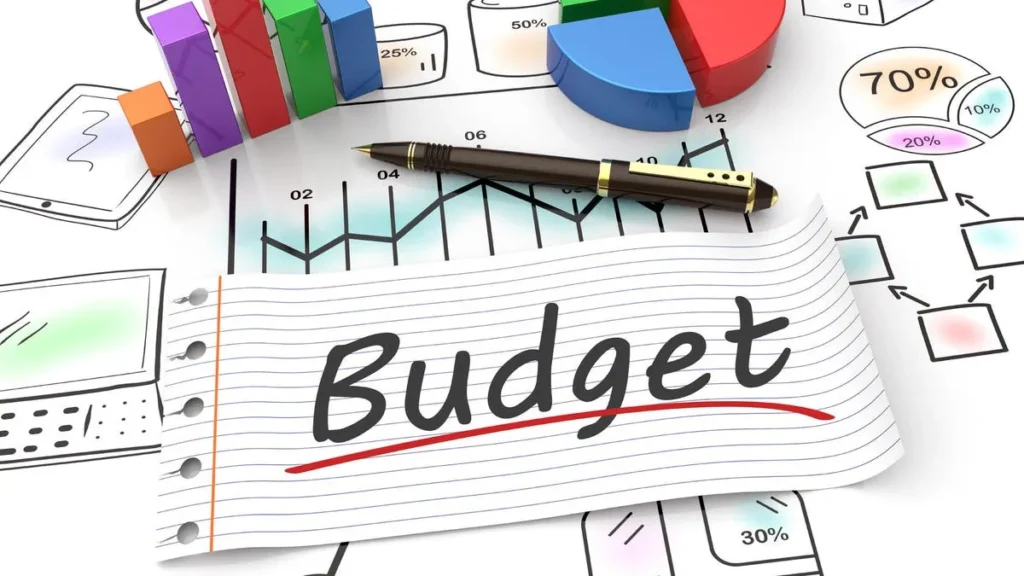Creating a realistic, effective budget is no longer just about pen and paper. In 2025, budgeting is smarter, more dynamic, and more personalized than ever before. With changing economic trends, higher living costs, and an explosion of digital finance tools, crafting a budget that truly works requires strategy and consistency. This guide walks you through how to create a budget tailored to your life—and stick to it—without the stress.
💡 Why Budgeting Still Matters in 2025
With rising inflation, unpredictable markets, and increased reliance on subscriptions and digital spending, it’s easier than ever to lose track of your money. Budgeting brings back control.
A good budget helps you:
- Track where your money goes
- Plan for short- and long-term goals
- Avoid unnecessary debt
- Stay financially prepared for emergencies
📊 Step 1: Know Your Net Income
Start with your actual take-home pay, not your salary. Subtract taxes, insurance premiums, and retirement contributions to calculate what you really bring home each month.
Include:
- Full-time/part-time job income
- Freelance or side hustle earnings
- Investment income (if consistent)
📋 Step 2: Categorize Your Spending
Break your expenses into three main categories:
Fixed Expenses
These don’t change monthly:
- Rent or mortgage
- Loan payments
- Insurance premiums
Variable Expenses
These fluctuate:
- Groceries
- Gas
- Entertainment
- Dining out
Discretionary Spending
Wants, not needs:
- Subscriptions
- Travel
- Hobbies
Use budgeting apps like YNAB, Mint, or EveryDollar to make tracking easier.
💰 Step 3: Choose a Budgeting Method
1. Zero-Based Budgeting
Every dollar has a job. Income minus expenses equals zero.
2. 50/30/20 Rule
- 50% Needs
- 30% Wants
- 20% Savings/Debt Repayment
3. Envelope or Digital Envelope System
Physically or digitally allocate money into spending categories.
Choose what works best based on your habits and goals.
🔄 Step 4: Automate Where You Can
Set up automatic transfers:
- Savings and investment accounts
- Credit card payments
- Utility bills
Automation reduces the chances of missed payments and helps stick to your budget.
🎯 Step 5: Set SMART Financial Goals
Your budget should reflect what you’re working toward.
Examples:
- Save $10,000 for a down payment by Dec 2025
- Pay off $5,000 credit card debt in 12 months
- Invest $500/month in index funds
SMART = Specific, Measurable, Achievable, Relevant, Time-bound
📅 Step 6: Track & Adjust Monthly
Review your budget every month.
Ask:
- What worked?
- Where did I overspend?
- What needs adjusting?
Flexibility is crucial—adjust your budget as life changes.
✅ Step 7: Build in a Buffer Zone
Add a small miscellaneous category (e.g., $50–$100/month) for unexpected costs. This avoids draining savings.
📈 Step 8: Don’t Forget Annual Expenses
Prepare for non-monthly costs like:
- Insurance premiums
- Holidays
- School fees
Divide the total by 12 and save monthly.
🧠 Step 9: Avoid Lifestyle Creep
As income rises, avoid increasing spending proportionately. Stick to your budget and direct extra money to savings or investments.
🔐 Step 10: Make It Yours
No two budgets are identical. Factor in:
- Family size
- City cost of living
- Career type
Your budget should reflect your lifestyle, values, and goals.
💬 FAQs: Budgeting in 2025
Q1: How much should I save monthly?
Aim for 20% of your net income. Adjust based on your goals and financial obligations.
Q2: What if I can’t stick to my budget?
Review and revise. Budgeting is flexible. Start with basic categories and build discipline over time.
Q3: Should I budget for fun and entertainment?
Absolutely. Budgets that don’t allow room for enjoyment often fail. Set a realistic amount.
Q4: Can couples use one budget together?
Yes, if your finances are shared. Otherwise, use a hybrid system with shared and personal budgets.
Q5: Are budgeting apps safe?
Reputable apps use bank-level encryption. Always use trusted tools with two-factor authentication.
🔗 Useful Resources for Budgeting Success
- YNAB – You Need A Budget
- NerdWallet Budget Planner
- Mint Budgeting App
- Dave Ramsey’s Budgeting Tools
- Investopedia: Budgeting Basics
🧾 Conclusion: Make 2025 Your Year of Financial Clarity
Budgeting isn’t about restriction—it’s about freedom. By creating a plan tailored to your income, lifestyle, and goals, you can reduce stress, boost savings, and prepare for the future. Don’t wait for a crisis to get your finances in order. Start today, adjust as needed, and build a future where your money works for you—not against you.
🎁 Want a Surprise?
Click here to get redirected to a random post


